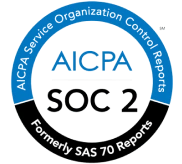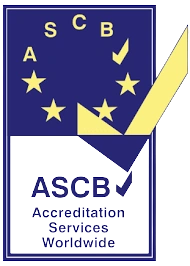Introduction
In a world that’s increasingly focused on sustainability and ethical practices, ESG principles—Environmental, Social, and Governance—have become the cornerstone of responsible business strategies.
These principles guide organisations in making decisions that positively impact the planet, society, and their governance structures.
While ESG has traditionally been seen as a top-level business concern, its relevance in Human Resources (HR) is growing.
HR departments are uniquely positioned to drive ESG initiatives, influencing everything from company culture to sustainability efforts.

What Does ESG Stand For?
-
Environmental Factors
Environmental factors emphasise reducing the ecological footprint of business operations. This includes initiatives like cutting carbon emissions, conserving water, and managing waste responsibly.
HR can contribute by promoting eco-friendly practices, such as encouraging paperless communication and adopting green technologies in recruitment and training.
-
Social Factors
The "S" in ESG focuses on a company’s relationship with its employees, customers, and communities.
Issues like workplace diversity, employee well-being, and social responsibility fall under this domain.
HR departments are instrumental here, as they handle policies and programs that promote a fair, inclusive, and supportive workplace.
-
Governance Factors
Governance is about leadership, accountability, and transparency within an organisation. Strong governance ensures ethical decision-making, adherence to laws, and safeguarding stakeholder interests.
For HR, this includes creating policies that uphold ethical standards, ensuring compliance with labour laws, and maintaining employee data privacy.
Why ESG Matters for Organisations?
Organisations that integrate ESG principles are better equipped to handle today’s challenges, including environmental crises, social inequalities, and increasing demands for transparency.
ESG compliance improves brand reputation, attracts socially conscious investors, and enhances employee engagement.
Furthermore, customers and employees increasingly prefer companies with strong ESG values, giving them a competitive advantage.
ESG and Human Resources: The Connection
HR serves as the bridge between ESG principles and their practical implementation. From hiring diverse talent to crafting policies that reflect sustainability goals, HR is at the forefront of driving ESG initiatives.
By aligning HR strategies with ESG principles, companies can foster an ethical, inclusive, and environmentally-conscious workplace culture.
Environmental Responsibility in HR
-
Green Workplace Initiatives
HR can spearhead green workplace programs, such as energy-saving campaigns, waste segregation, and eco-friendly office designs.
For instance, encouraging natural lighting or installing energy-efficient appliances can significantly reduce energy consumption.
-
Sustainable HR Practices
Adopting sustainable practices like virtual onboarding, online training modules, and digital documentation reduces paper waste and supports remote work flexibility.
-
Reducing Carbon Footprint
Policies like offering incentives for carpooling, providing bike-to-work schemes, or enabling remote work help minimise the environmental impact of daily commuting.
Social Responsibility in HR
-
Promoting Diversity and Inclusion
Diversity and inclusion initiatives ensure that workplaces represent various backgrounds, experiences, and perspectives.
This includes setting diversity hiring targets, addressing unconscious bias, and creating safe spaces for open dialogue.
-
Employee Well-being Programs
HR can implement programs that support mental and physical health, such as yoga classes, wellness apps, and counselling services.
Flexible work hours and remote work policies contribute to a healthier work-life balance.
-
Community Engagement
Engaging with local communities through volunteer programs, charity events, or partnerships with social organizations fosters a sense of social responsibility among employees.
Governance in HR
-
Transparent Policies
Transparency in HR policies, such as fair pay structures, promotion criteria, and grievance redressal mechanisms, builds employee trust.
-
Ethical Decision-Making
HR leaders must ensure that ethical standards are upheld across all processes, from hiring to performance management. For example, creating a code of conduct and ensuring adherence to it promotes integrity.
-
Data Protection and Privacy
HR handles sensitive employee information, making data protection a top priority.
Using secure systems and adhering to data privacy laws, such as GDPR, safeguards employee trust.
Steps to Incorporate ESG Principles in HR
- Assess Current Practices
Begin by conducting an ESG audit to identify gaps in current HR practices. This can include evaluating diversity metrics, sustainability efforts, and compliance standards.
- Set ESG Goals
Develop measurable and realistic ESG goals that align with the company’s overall objectives.
For example, aim to achieve a 50% reduction in paper use or ensure 40% female representation in leadership roles.
- Training and Awareness Programs
Educate employees about ESG principles through workshops, e-learning modules, and company-wide initiatives. Awareness is the first step toward creating a culture of sustainability and ethics.
Leveraging HRMS for ESG Tracking
Modern HR management systems (HRMS), such as uKnowva, help track diversity metrics, monitor sustainability goals, and generate compliance reports, making ESG integration seamless.
Future Trends in ESG and HR
The ESG landscape is evolving rapidly. Future trends include a heightened focus on mental health, stricter environmental regulations, and the use of AI-driven tools to support ESG goals.
HR’s role will continue to expand as organisations recognize the value of aligning people strategies with ESG principles.
How uKnowva HRMS Supports ESG Principles?
uKnowva HRMS is designed to integrate ESG seamlessly into HR operations.
Features like diversity tracking, paperless workflows, and automated compliance reporting make it a valuable tool for organisations committed to ESG values.
By streamlining processes, uKnowva HRMS enables HR to focus on creating a sustainable and inclusive workplace.
Conclusion
ESG principles are more than a corporate trend; they’re a framework for building responsible, future-focused organisations.
For HR, integrating uKnowva HRMS with ESG principles offers a unique opportunity to lead meaningful change, fostering a culture that values sustainability, equity, and governance.
FAQs of ESG Principles
-
How can organisations measure their ESG performance?
Organisations can measure ESG performance using various tools and metrics, such as:
- Environmental metrics: Carbon footprint, energy consumption, and waste management.
- Social metrics: Employee satisfaction, diversity ratios, and community engagement.
- Governance metrics: Compliance rates, transparency scores, and ethical audit results.
Reporting frameworks like the Global Reporting Initiative (GRI) and Sustainability Accounting Standards Board (SASB) can also guide ESG reporting.
-
What role does HR play in implementing ESG principles?
HR is pivotal in embedding ESG principles into workplace culture and operations. Key contributions include:
- Driving diversity and inclusion initiatives.
- Promoting employee well-being programs.
- Developing transparent and ethical workplace policies.
- Supporting sustainability goals through green workplace practices.
-
What are the challenges in adopting ESG principles?
Organisations may face several challenges in implementing ESG principles, such as:
- Resistance to change within the workforce.
- Lack of resources or expertise to develop effective ESG strategies.
- Difficulty in aligning ESG goals with short-term business objectives.
- Regulatory compliance and reporting complexities.












